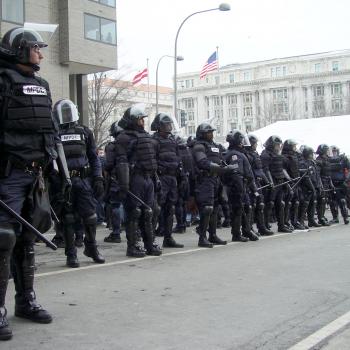Yesterday, my colleague Tom Berlin put forward a motion to postpone the resolution that had been put forward to change the United Methodist Discipline‘s language on homosexuality so that we could have a year of dialogue as a conference about sexuality as proposed by our bishop. I imagine that there were some people in the room who felt quite betrayed by this motion (which I not only supported but encouraged Tom beforehand to propose). A woman stood up to say that justice delayed is justice denied. That perspective makes sense to me. When Tom’s motion passed and there was a loud applause, it made me wince. Because I thought how many LGBT people in the room hear that applause as a negation of them. I wasn’t sure how many people were applauding what they thought was a decision not to talk about that ugly, divisive topic for another year, which is the opposite of what Tom and I are hoping will happen. So the onus is now on those of us who have been concerned about the real possibility of schism to make sure that these conversations really do happen and are well-attended.
I had been hoping to stand up yesterday and say that a vote in favor of postponing the resolution was not a vote to dodge the subject, but a vote to engage in more intensive prayerful, uncomfortable, gracious conversation about it. I left the stupid card you have to wave in the air to get recognized to speak at the hotel room. My friend Beth Anderson did a great job capturing what I would have said anyway. But I’m nervous now. People are going to go back to their churches. They’re going to start planning their fall sermon series, their stewardship campaigns, their Advents. Then in a few months in the thick of the monstrous church programming year, they’re going to get one of those dozen urgent read immediately emails that we receive every day from our Methodist district offices and they’re going to delete it without reading it like 90% of us do, except that this email is going to be their invitation to a district dialogue about sexuality. If you voted to postpone the resolution about sexuality so that we can have dialogue, then you’d better be there when it’s time to dialogue!
If the Virginia conference is going to talk about sex, it needs to be more than one of those brown bag panel discussions that only really bored, unbusy people make it out to. And it definitely needs to be about more than the “topic” of homosexuality. Because there’s a whole lot about sexuality that our church needs to talk about. A third to half of the men in our pews are looking at internet pornography on a regular basis. Half of our marriages are ending in divorce. An amazingly small percentage of our teenagers and young adults are waiting for marriage to have sex. Clearly, we are failing to cast a compelling, coherent vision for sexual holiness. There’s just a vague sense that it’s against the rules unless you’re married, but not a whole lot of teaching about the relationship between what we do with our bodies and our ability to love God and each other fully.
My hope and prayer is that our Common Table will not only set up district-level brown bag luncheons, but will gather resources that share a variety of perspectives on Christian teaching about sexuality and make these available for small groups within each of our churches. One of the biggest divides in Methodism is between the clergy and laity. If clergy are having conversations together without laity, that’s missing the point. And I really hope that these conversations are going to be framed in such a way so that they can yield real discipleship fruit for each participant because God has been given the space to teach us unexpected things. It’s got to be so much more than coming to a conclusion about the issue of homosexuality or learning how we can agree to disagree. I’ve put forward some suggested principles to consider in having these discussions.
One other thing that’s needed right now is to be especially sensitive to the pain that our LGBT brothers and sisters within the Virginia Conference continue to suffer. If it’s hurtful for them to be a part of these dialogues, we need to respect that. On the one hand, we need to make sure we’re intentional about reaching out to LGBT people because our conversation is woefully inadequate without them at the table. On the other hand, if they don’t feel safe, they get to decide that and we don’t get to be offended by that. We just need to be proactively, unconditionally hospitable. And of course we need to pray. A whole lot!











